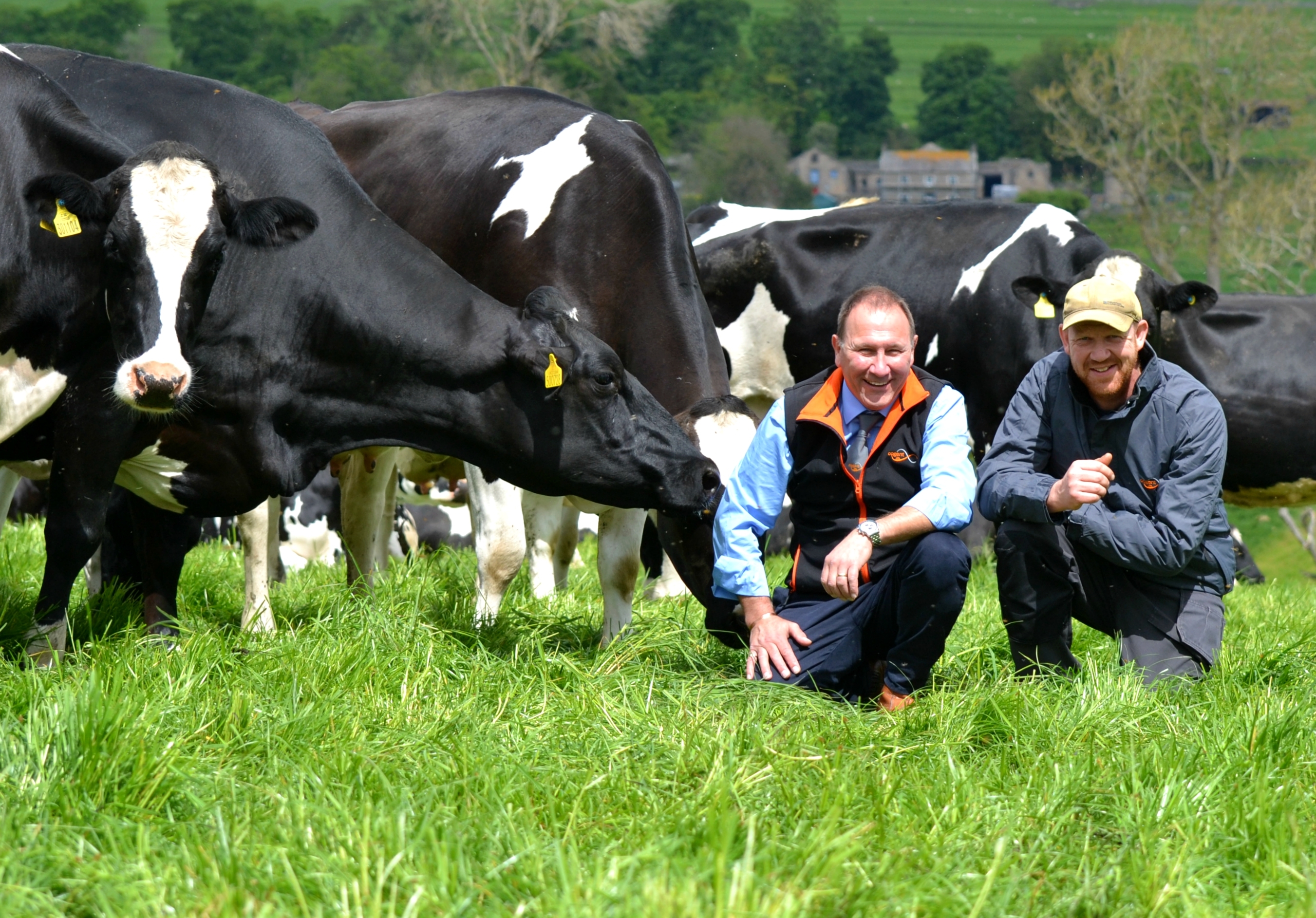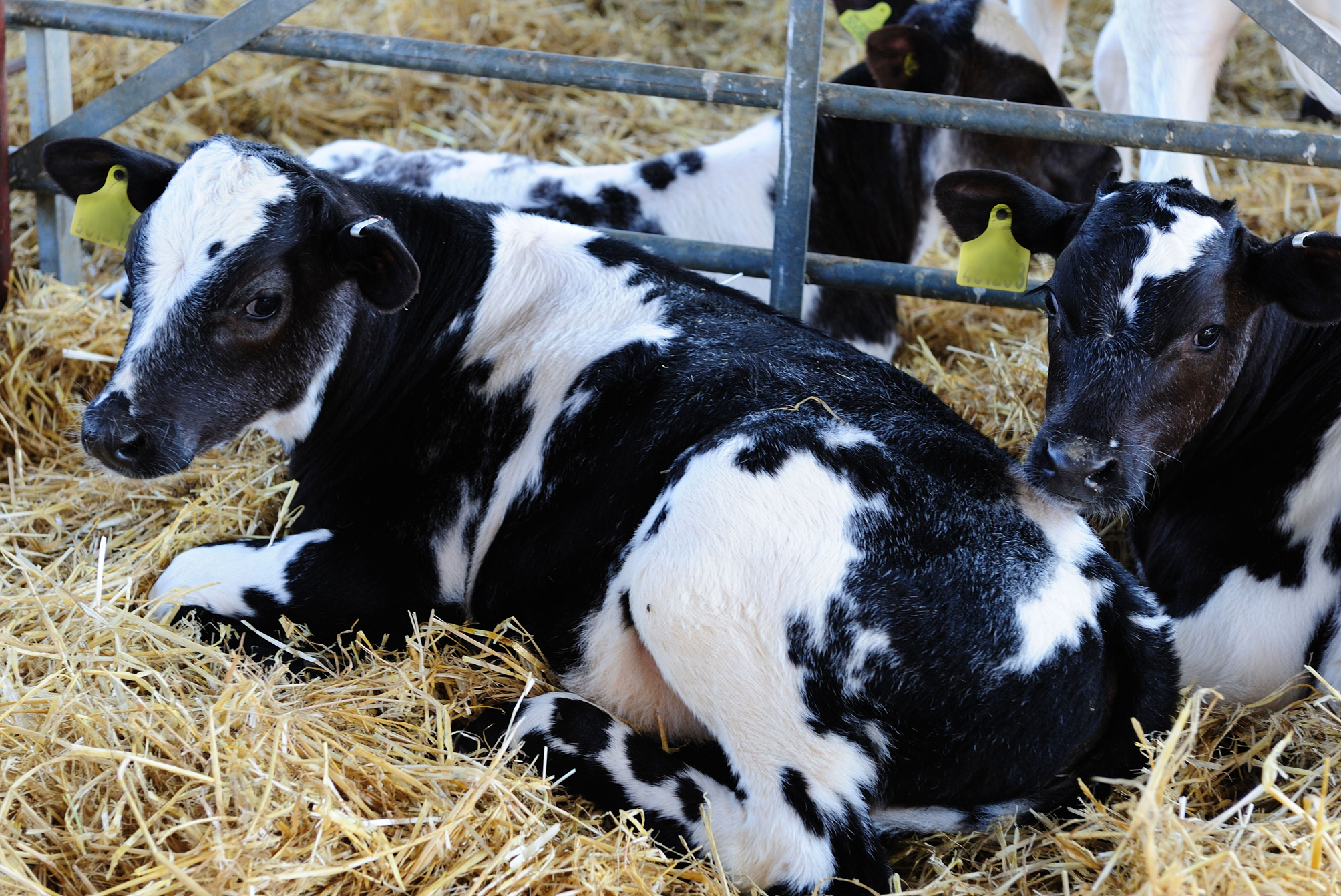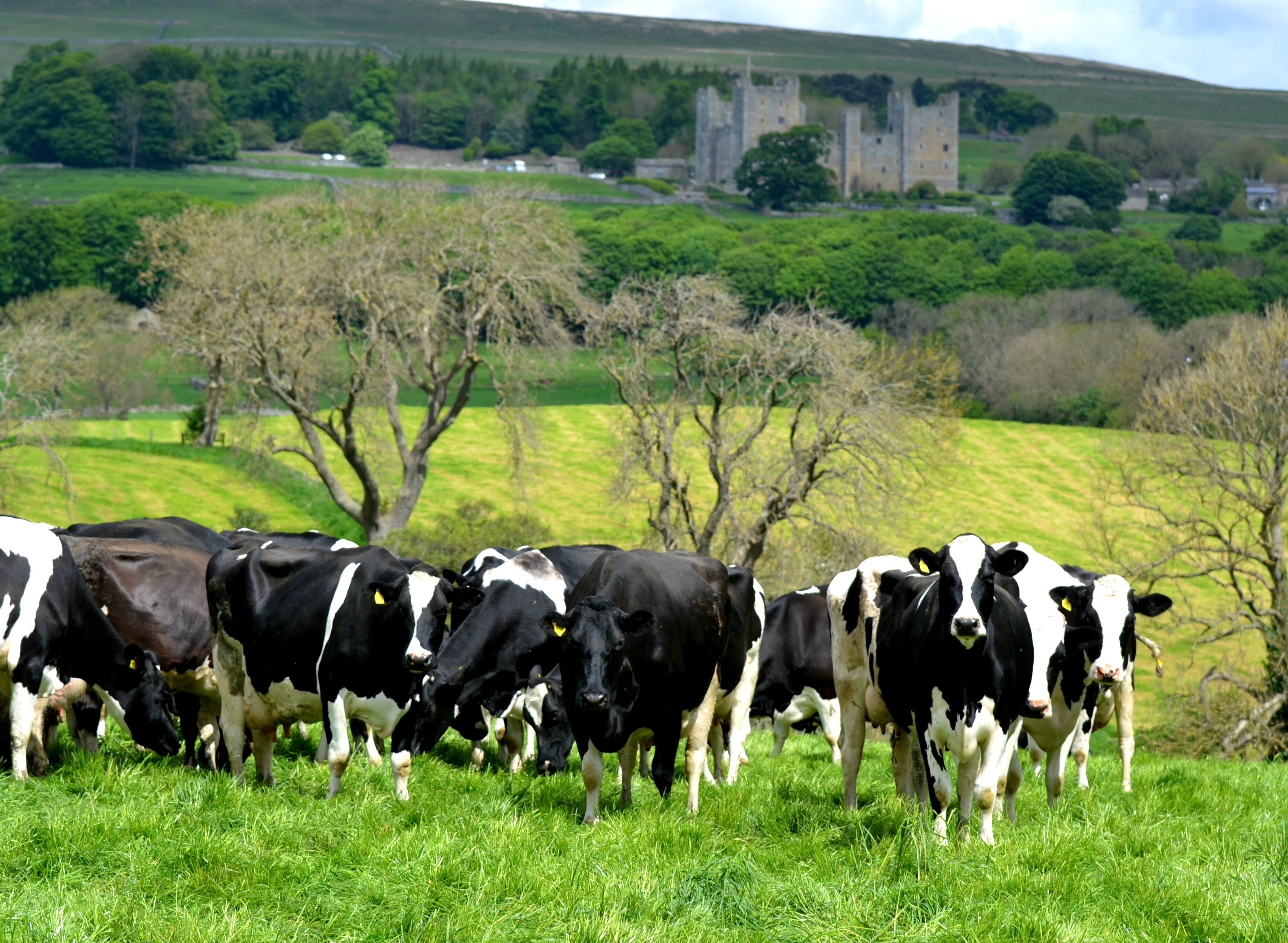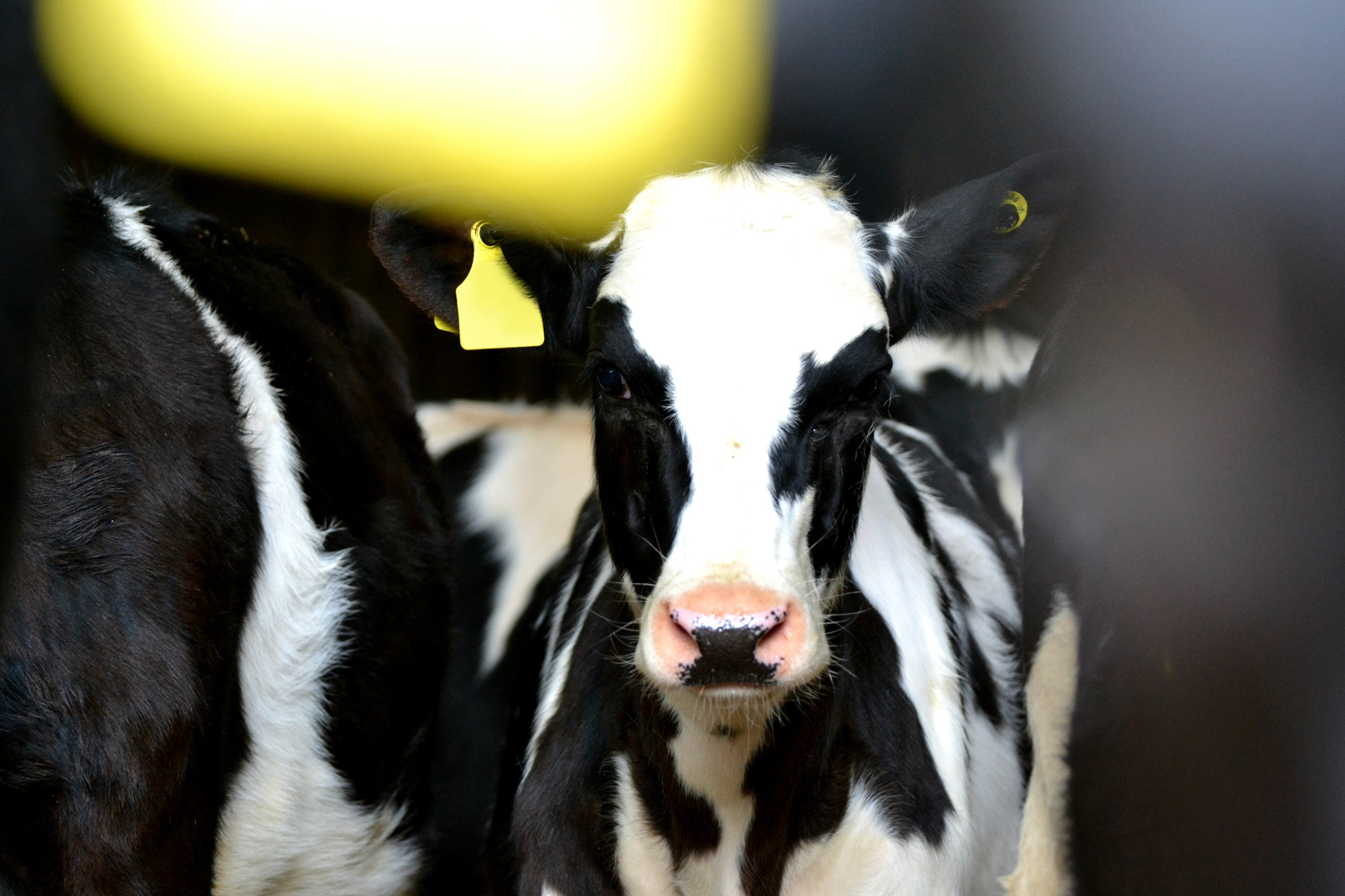A succession of dairy bull calves can hit morale hard on a family farm. But Yorkshire farmer, Richard Weatherald, has found the formula to banish them from the system.
North Yorkshire farmer, Richard Weatherald, had often struggled to breed enough replacement heifers for his family dairy herd but never dared to take the plunge with sexed female semen.

But the birth of one dairy bull calf after another was dragging the team down at Low Thoresby in Carperby in Wensleydale, where the family are tenant famers milking a 9,000 litre 4.3% fat and 3.44% protein 100-cow herd.
“Our records say we had a male to female ratio of 52:48, but it felt much worse than that,” says Richard. “Sometimes we could have a dozen bull calves in succession and Dad and I found it completely demoralising.”
However, he says he had been reluctant to try sexed semen as he feared the herd’s fertility would take a hit.
“But I found myself reading more and more about people having success with the modern product and we eventually decided to give it a go.
“I thought that even if it took one more service per cow to get a heifer calf that would be a risk worth taking,” he says. “But that did not happen. In fact, we found it to be just as fertile as conventional semen and we really haven’t looked back since we started.”
His view that the herd’s reproductive performance is unchanged since they made the switch is borne out by the performance recording. Two years on, this shows a 395-day calving interval, a 45% conception rate and 2.15 services per conception.
“These figures are okay as far as I’m concerned but the important thing is they are no different from before,” he says. “In fact, I served a cow in error one morning which I thought was on her first service. But I had mis-read the board and she was on her sixth – and she went on and held to sexed semen!”
The Weatherald family now use Cogent’s new high-concentration product, Sexed ULTRA 4M, on every cow they want to produce a dairy replacement.
“We want roughly 25 to 30 replacement heifers but my aim is slightly different from other farmers’,” he says. “Although we are all-year-calving, we want our heifers to calve in a block so they can be easily managed in one group.
“This means I don’t necessarily choose the best cows in the herd to breed our replacements, but choose the best of those which calve at the right time,” he says.
In practice, this means selecting the best from those which calve from April to July, with the aim of rearing a group of heifer calves from May onwards.
“We don’t mind what age the cow is if she calves at the right time – we’re happy to breed any age of cow to Sexed ULTRA 4M,” he says.
And once sufficient numbers have been served to produce the dairy herd’s replacements, the switch is then made to beef semen.
“We now put at least 60% of the herd to beef, using British Blue on those which have had two or more calves,” says Richard. “Angus is used on the first and second calvers or anything that’s had a previous problem.”
The immediate impact of the switch to sexed semen has been a marked increase in the farm’s profits.

“The black and white bull calves we used to produce could have fetched £100, but as little as £15 on a bad day,” he says. “But the beef-cross calves, which we generally sell at a month old, will go for an average of £300.
“The best ones which went through Leyburn Auction Mart last year went for a top of £450 for a slightly older British Blue cross.
“Even the beef-cross heifer calves are in demand as there are a lot of suckler herds in the Dales which are prepared to pay the same for a heifer as a bull,” he says.
The loss of over 30 black and white dairy bull calves from the system and their replacement with beef is said to be worth at least £10,000 per annum.
“But the benefit to us is far greater than this as rearing all of our heifers in a group is a big management saving,” says Richard.
He has also been able to focus more closely on breeding and improving the herd’s uniformity and performance and with this in mind, has started to use Cogent’s PrecisionMATCH service.
This allows him to tailor breeding to the herd’s precise needs, improving traits important to the business.

“One of my top priorities is for good temperament as there’s nothing worse than a bad-tempered cow in the parlour,” he says. “A few years ago we had four by the same bull which were so bad they had to go!”
After temperament, he favours high milk solids, good feet and legs and good fertility.
These and other goals are included in the computer package, which will be run once the herd’s cows have been scored.
“Cogent’s Precision MATCH evaluator, Jamie Sproule, will regularly come out and score our cows which will then be matched to the most suitable sire,” says Richard. “Our own criteria are entered into the program, and the most suitable match for each will be picked.
“We hope this will lead to a better and more uniform herd, without the risk of inbreeding,” he says. “And I’m very happy that PrecisionMATCH reduces our workload, saving a lot of legwork in studying bull proofs.”
Currently using Mr Rubi-Agronaut, Soureth Conrad, Wiltor Dandy and Mr Moviestar Mardi Gras, he says his ultimate aim is for a ‘nice, good-natured cow that will last a long time’.
“We have not quite got any cows bred from this system milking in the herd but we are expecting to continue with the process,” he says. “And we will definitely carry on using Sexed ULTRA 4M and beef semen, as we feel so much more positive about the farm when heifers are being born, when the herd is improving and when things are generally progressing in the right direction.”
Low Thoresby Farm Facts
- 100 Holstein Friesians
- 9,000 litres at 4.3% fat and 3.44% protein (2x)
- Switched to sexed dairy semen two years ago
- Reproductive performance remained unchanged
- 395-day calving interval and 2.15 services per conception
- Now use Sexed ULTRA 4M on any age of cow and beef on 60% of herd
- British Blue crosses average £300 at one month old
- Extra income at least £10,000
